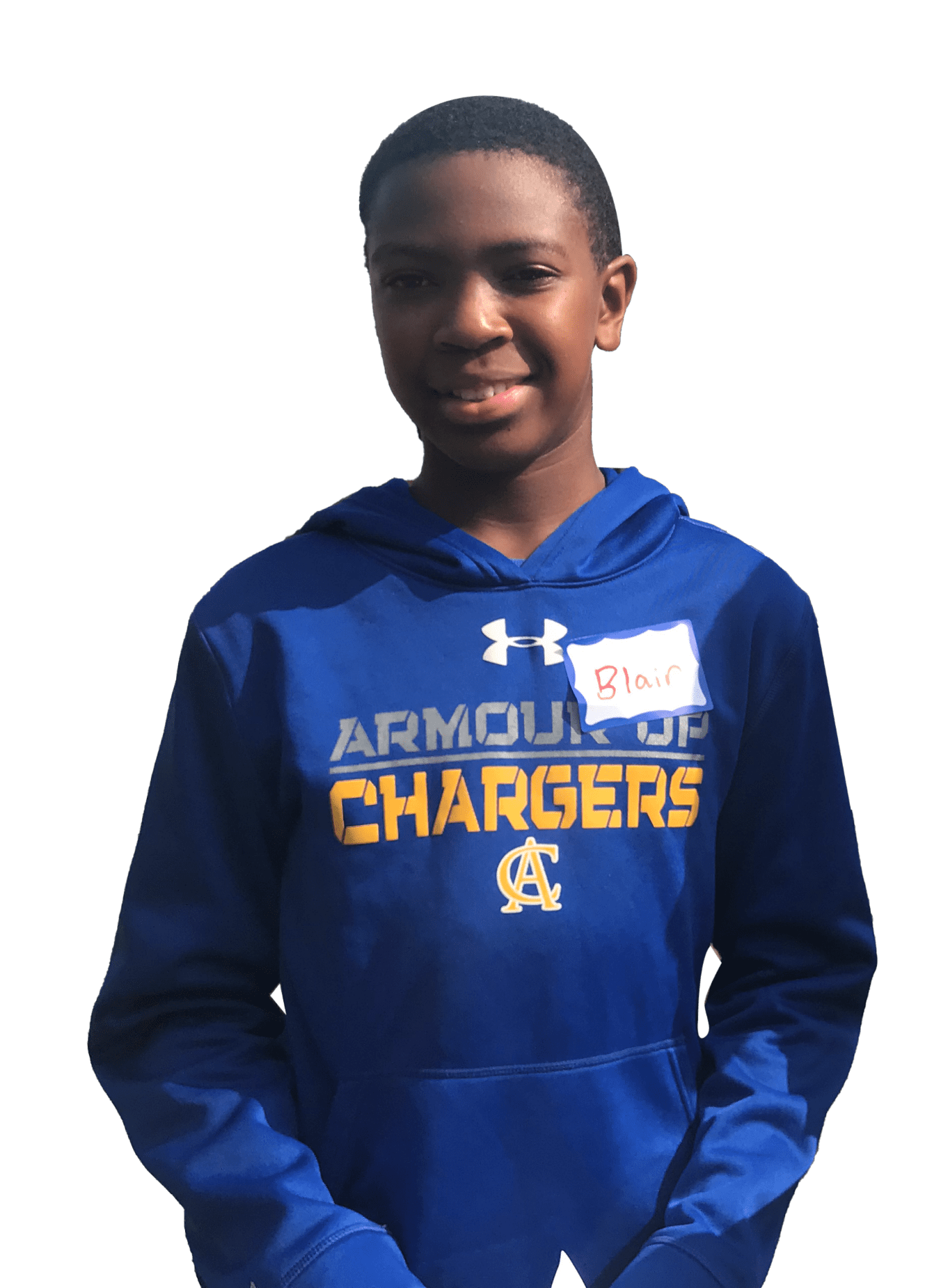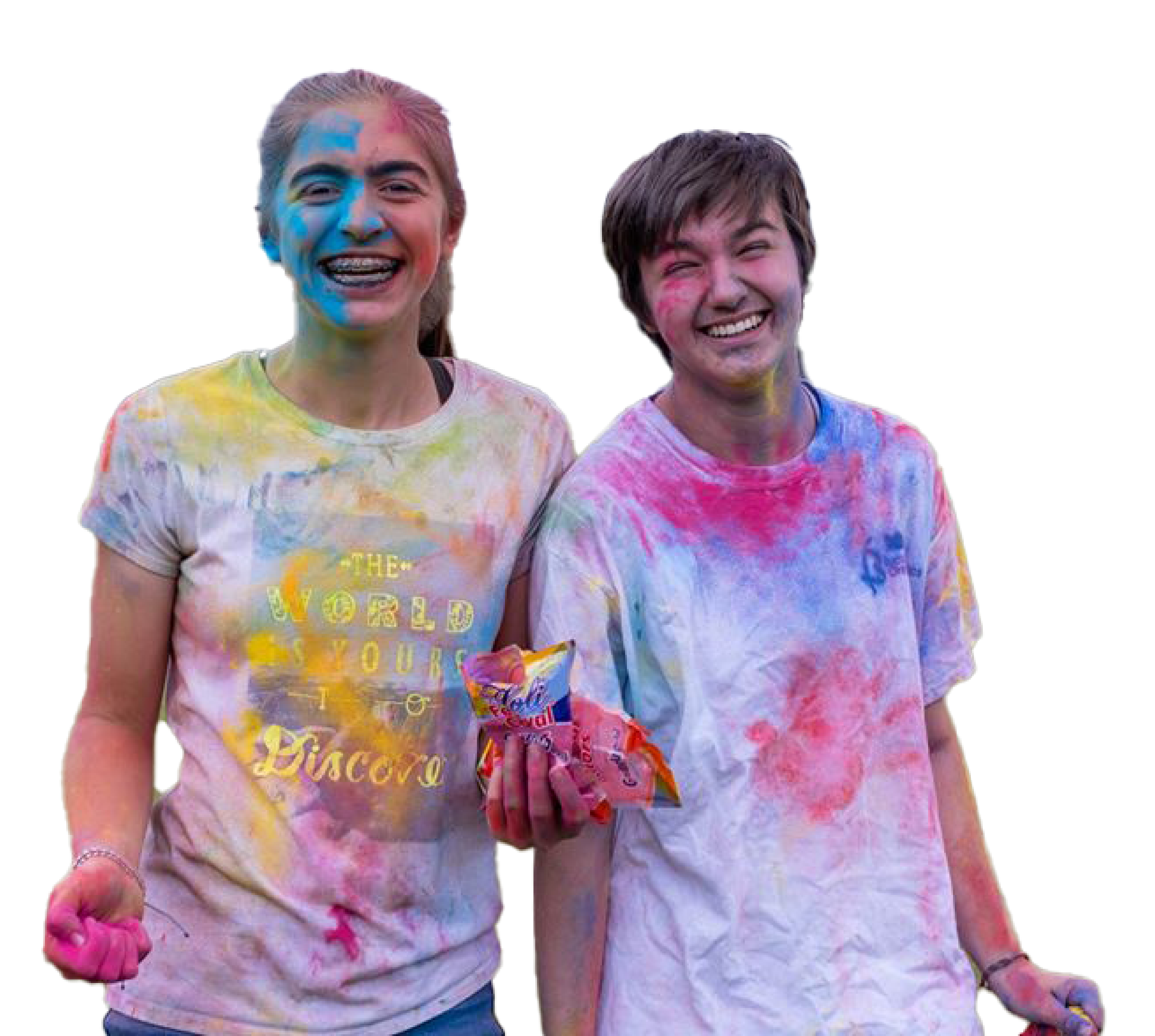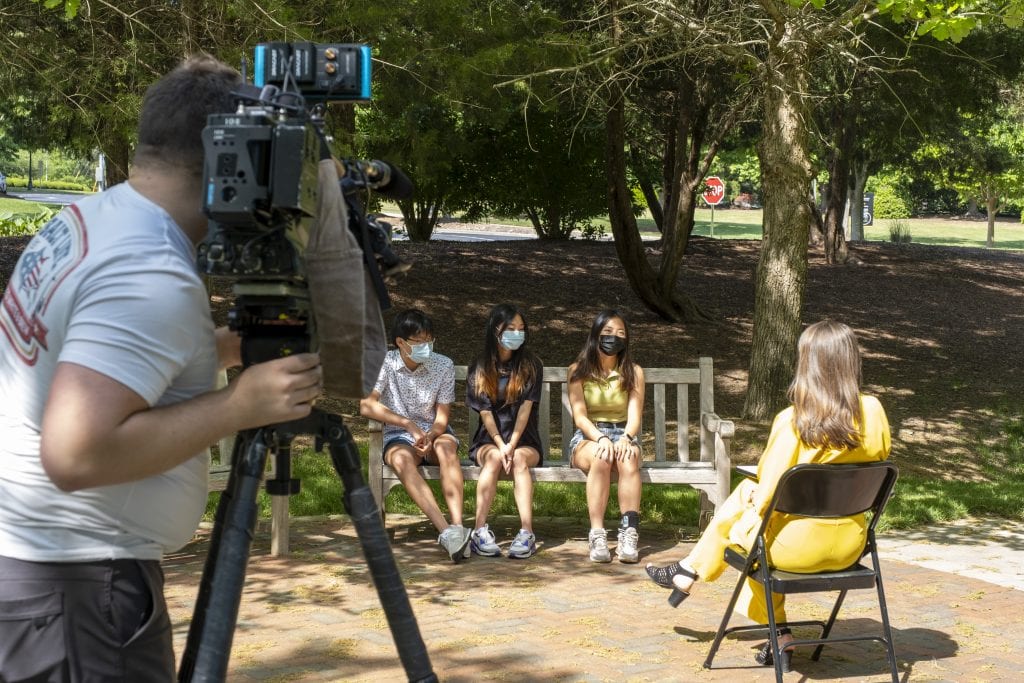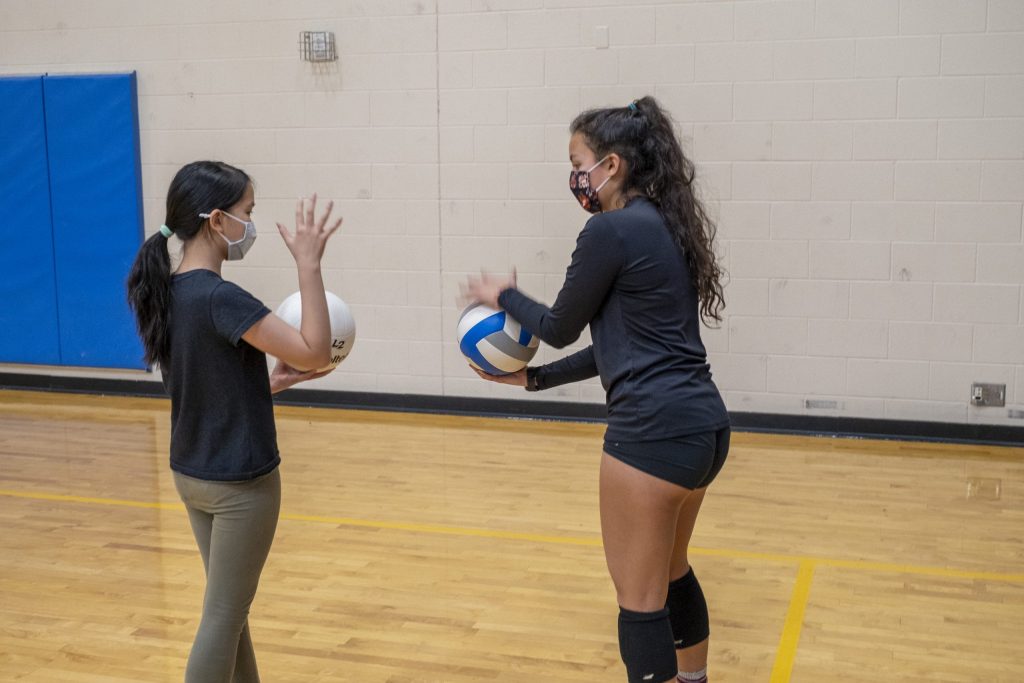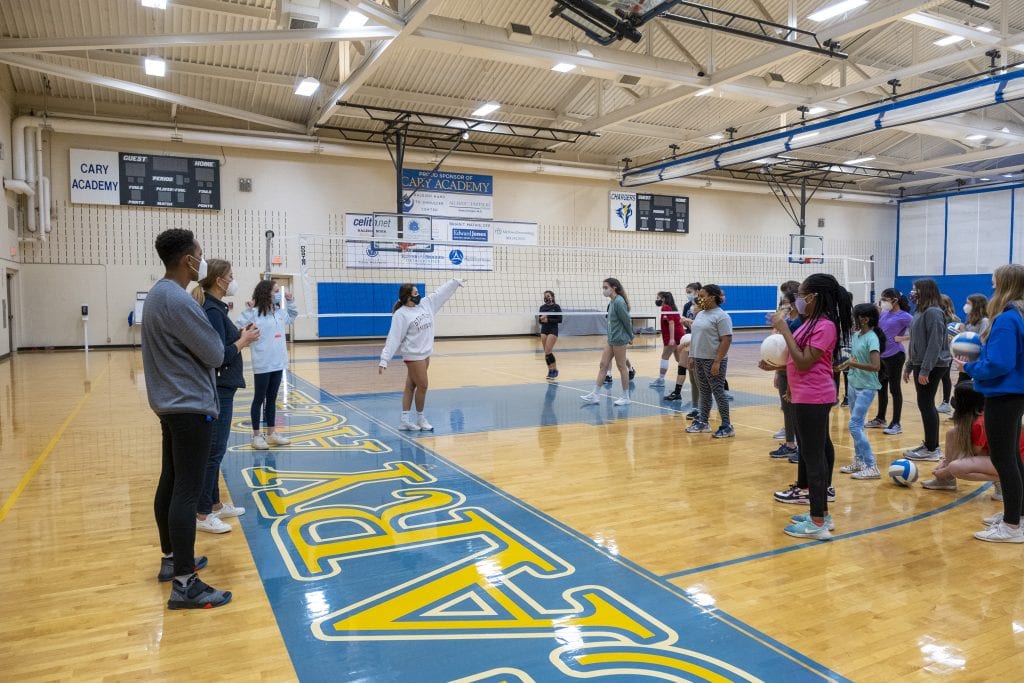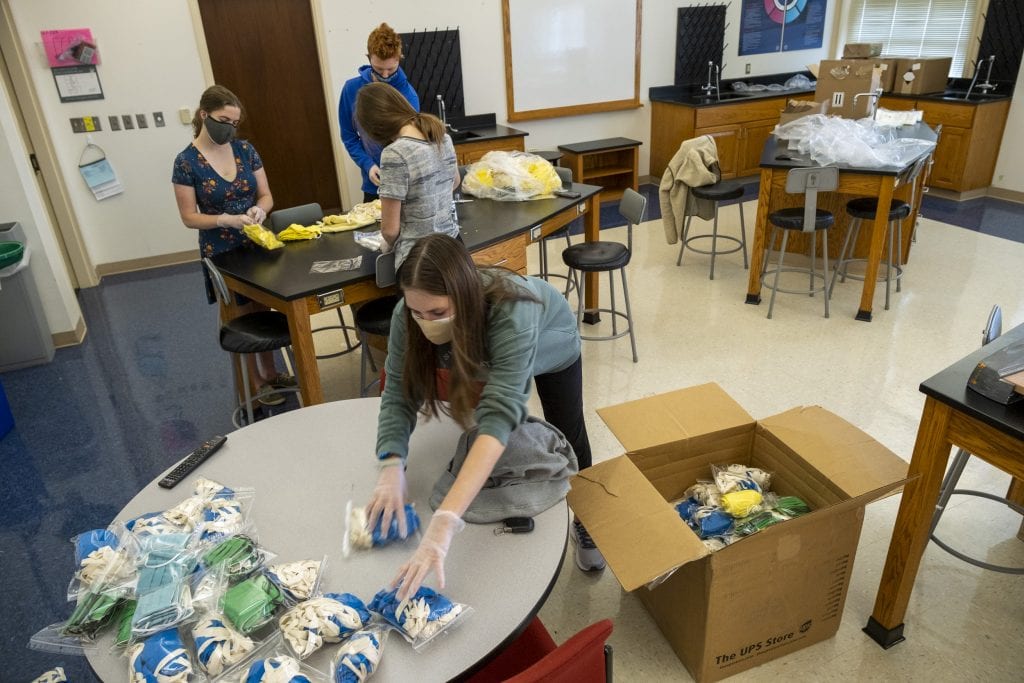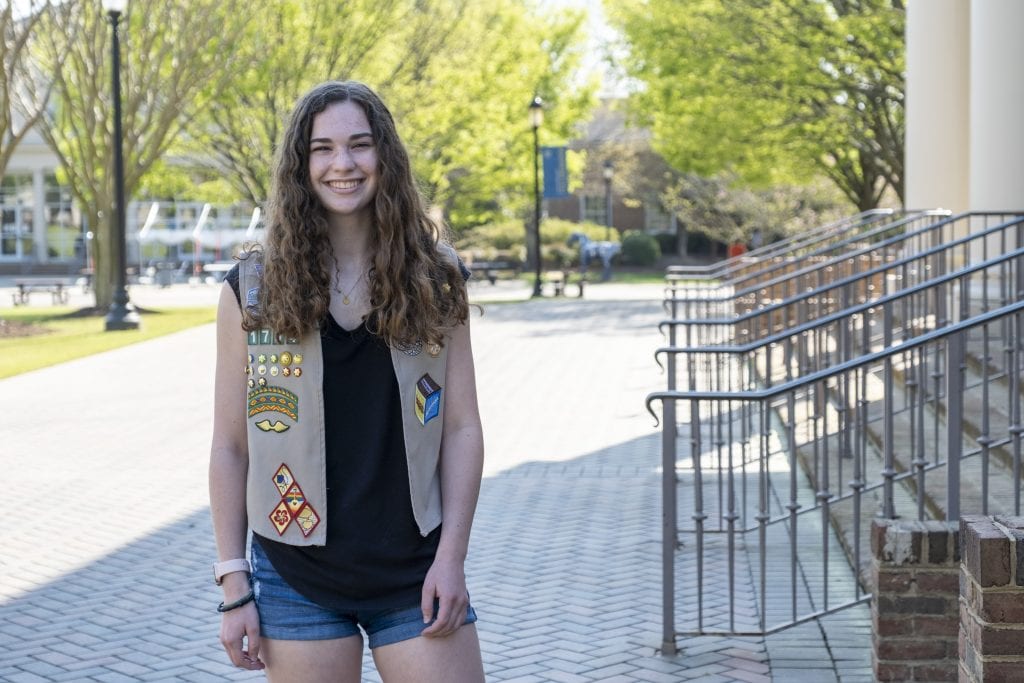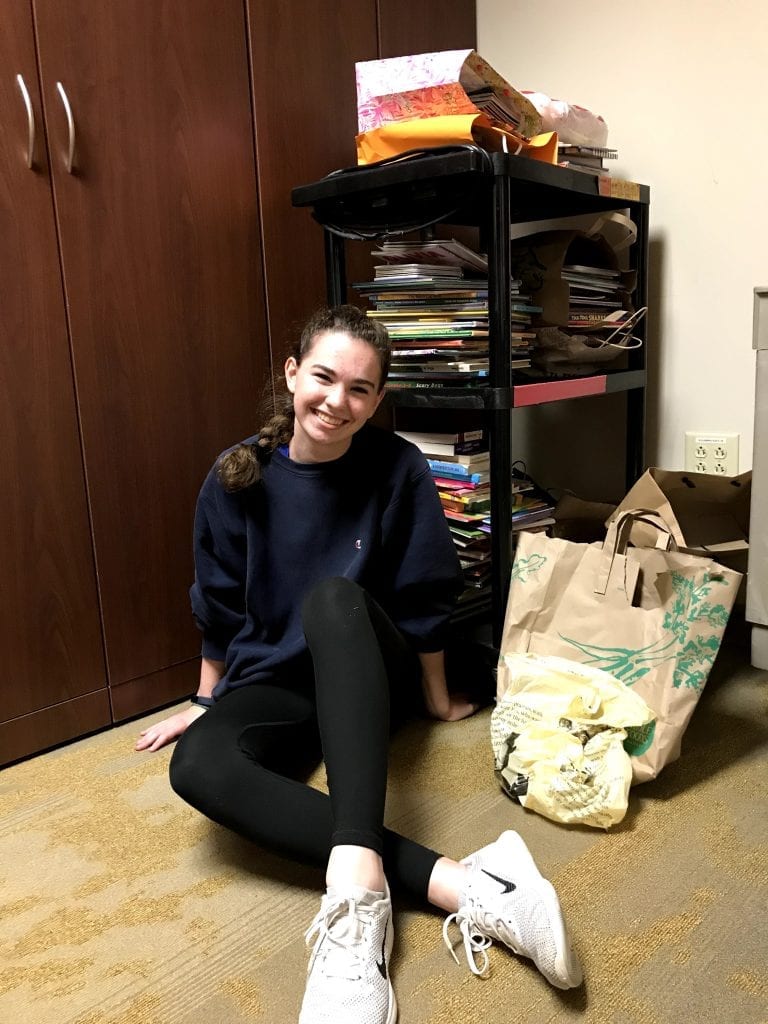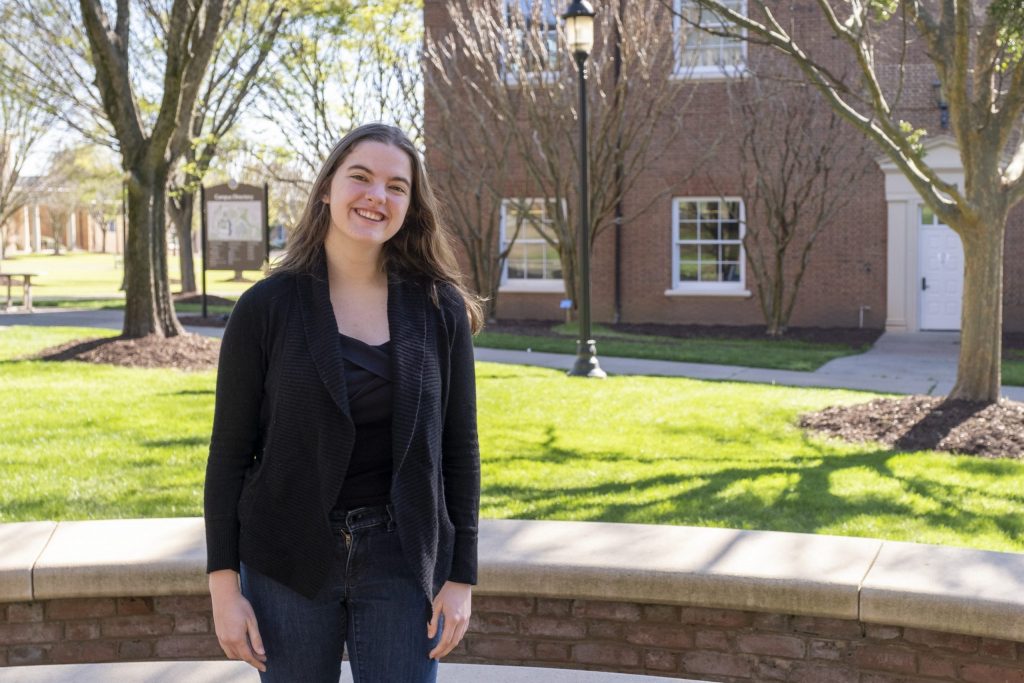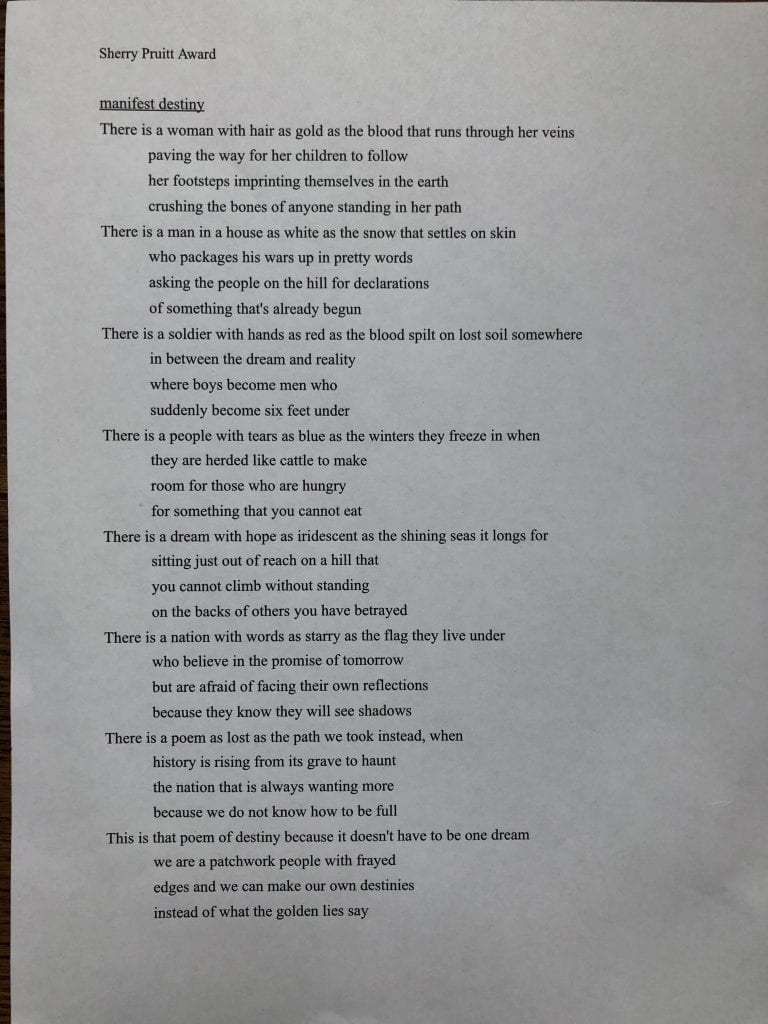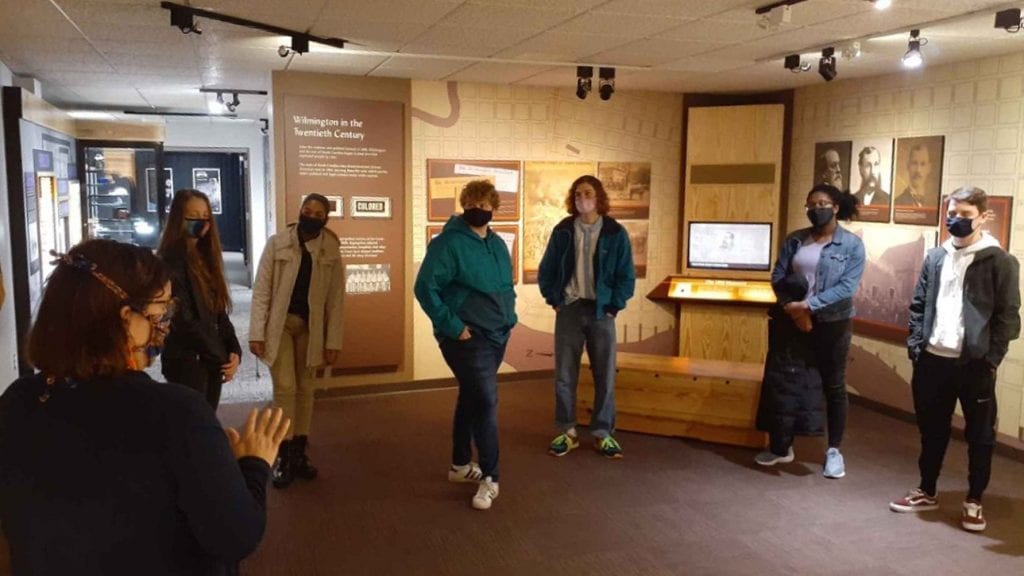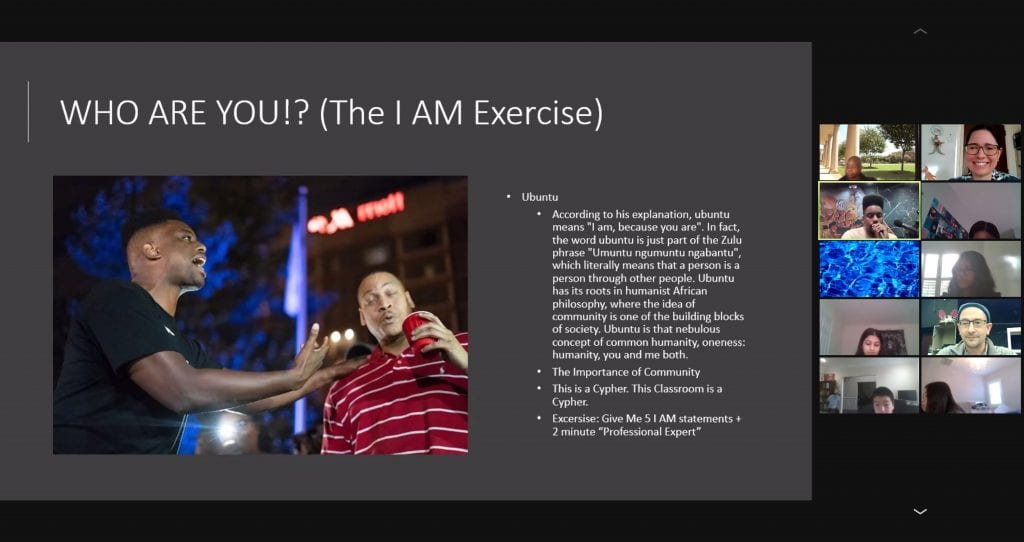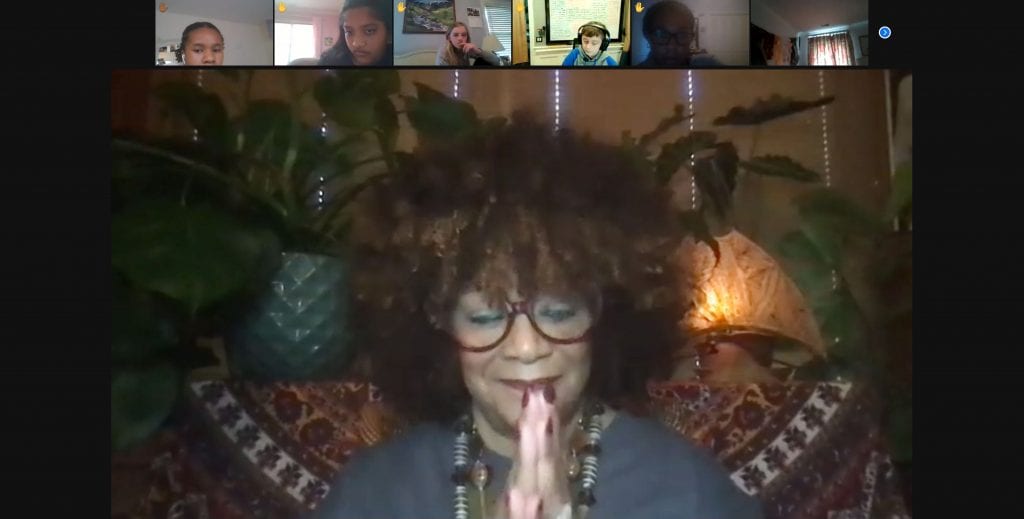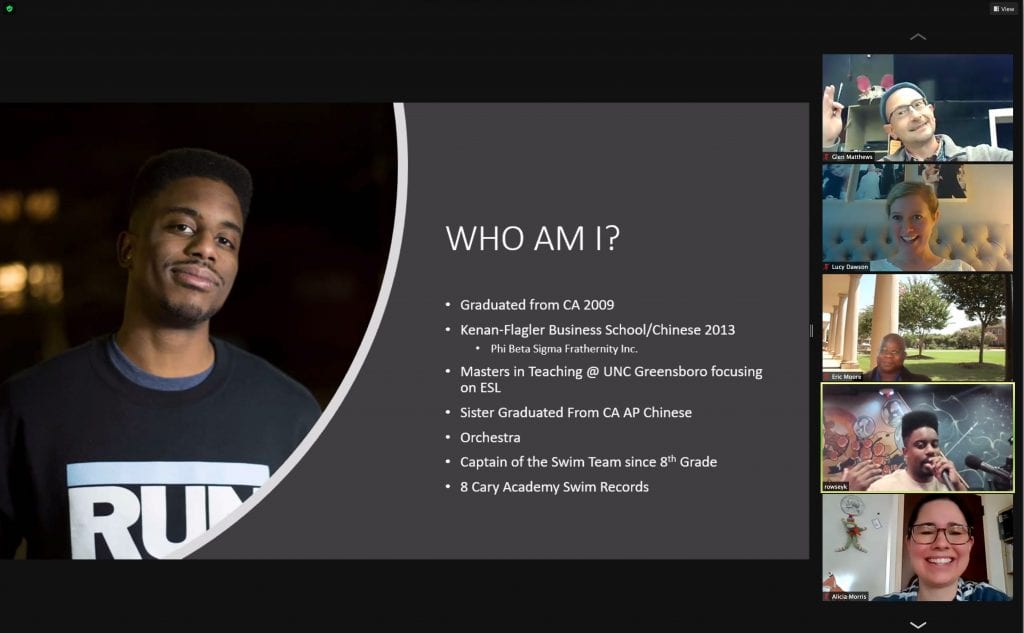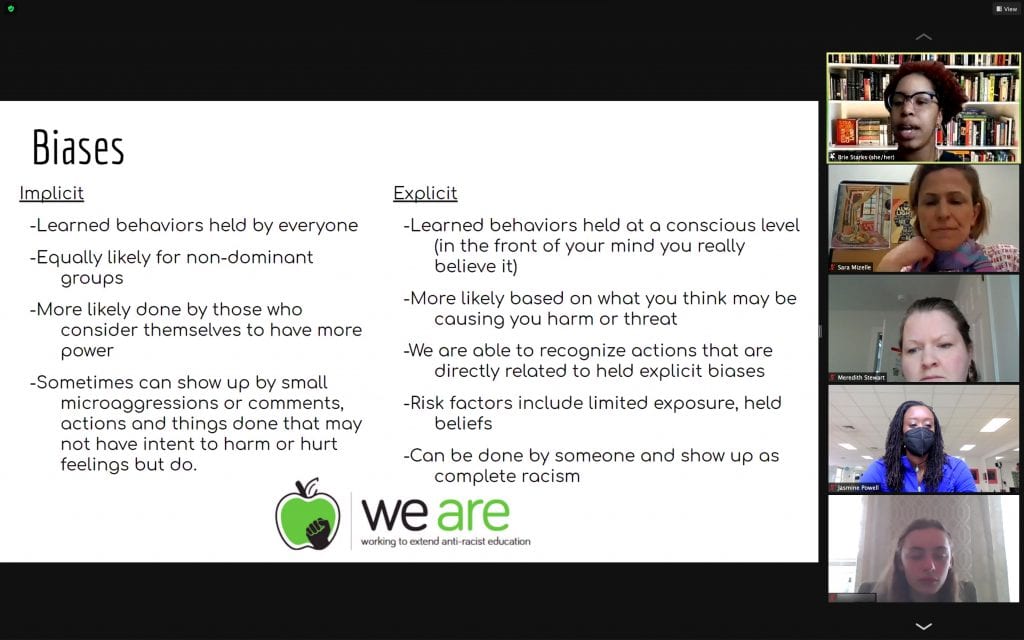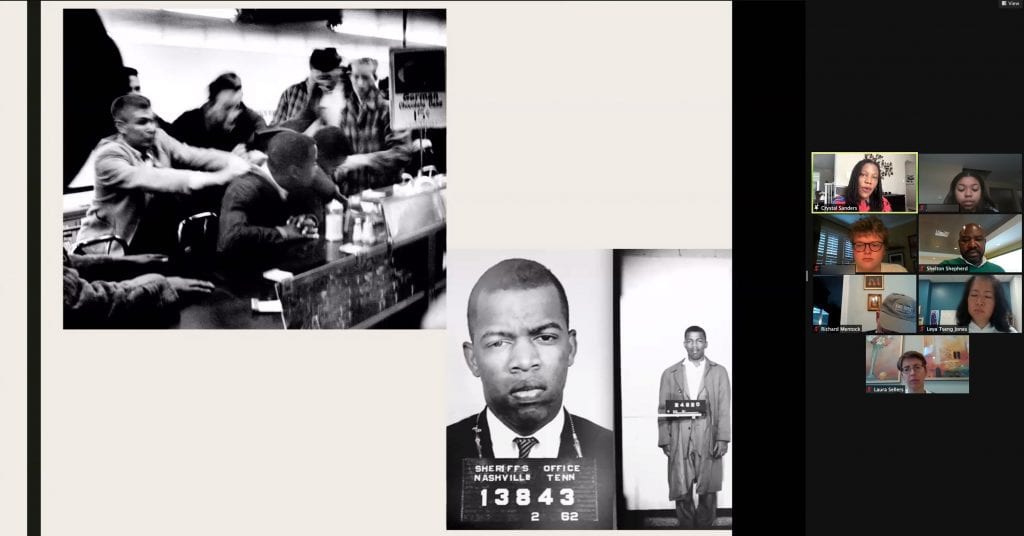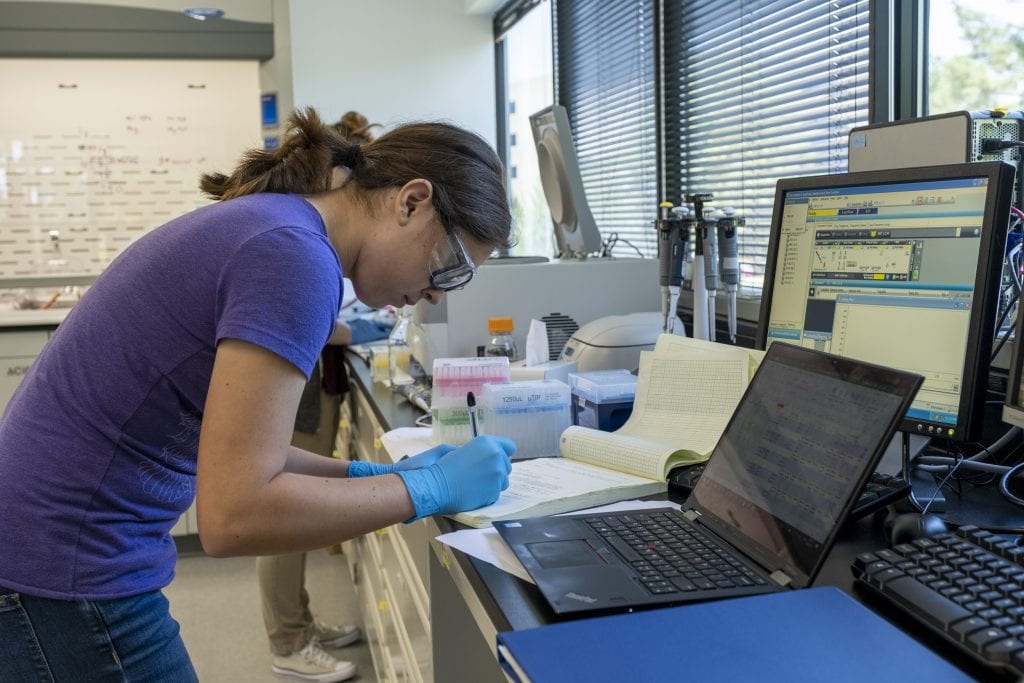“We’re living through history right now
with major crises that seem to be happening almost daily.”
-Christina Polge ’22
Like so many people across the country and the world, we in the Center for Community Engagement spent much of spring 2020 checking in with one another about how everyone was doing amid pandemic-imposed virtual school and masked grocery shopping.
Our conversations, like those with many of our students at the time, kept turning to how we were keenly aware of how race and economic status were shaping disparities in how different populations were experiencing the pandemic.
Over the summer, as the nation continued to reckon with the ongoing effects of its legacy of racial inequity, CA committed to redoubling its diversity, equity, and inclusion efforts and advancing social justice work. So, when the administration asked us to develop an experimental interdisciplinary program for a cohort of students, the questions we had already been grappling with took on new salience: What are the traits of a leader who responds effectively to a crisis, and what are the hallmarks of a successful response to a crisis? And, perhaps most crucially, how do we inspire and instill these traits and skills in our next generation of leaders?!
After lengthy collaboration and consideration, we arrived at our proposed answer: a new, collaboratively taught, interdisciplinary, cross-grade level experiential curriculum designed to engage students in the complex intersectionalities of race, gender, and class relations in America. We pitched our Leadership During Crisis program to Upper School students, and receiving an enthusiastic response, ultimately formed a cohort of twelve 10th – 12th grade students.
By any measure, it has been a productive and eye-opening year for all involved.
We have read, discussed, journaled, and written essays; we have also interacted with past and current climactic events.
We have visited sites of memory (and amnesia)—battlefields, monuments, and memorials—and an outdoor exhibit of sculptures by North Carolina artists that engage the year’s overlapping crises.
We have attended live conferences by Zoom, which have enabled us to hear from a range of speakers—from local anti-racism education activists to First Nations singer/songwriter and activist Lyla June to Nobel Laureate and past president of Liberia Ellen Johnson Sirleaf.
We witnessed the Capitol insurrection live in class and took in the Inauguration at the Capitol a couple weeks later. We discussed the Wilmington Coup of 1898 and Amanda Gorman’s The Hill We Climb to process both events.
We have found our rhythm, but February 5 was no ordinary Friday for the US Leadership During Crisis cohort; instead of meeting together in person as usual, the students fanned out across campus to Zoom into the NC Association of Independent Schools Diversity & Inclusion Conference as presenters.
After a brief overview of the program by us teachers, we turned things over to the students.
Bella Nesbeth ’22 and Christina Polge ’22 discussed what drew them to opt into the program. Christina said:
“The class and the opportunity could not have come at a more meaningful time for me or for the world. Especially during the pandemic, I think it’s so important that everyone has a good sense of self. I also wanted to learn how to use my privilege both as a white person and a student at a private school to be able to help others who are struggling more than I am. With the events of the past year– such as Breonna Taylor and George Floyd’s deaths–I wanted to understand how I can be a good ally and community member. We’re living through history right now with major crises that seem to be happening almost daily. So, not only was this program interesting to me, but it’s also timely and extremely relevant.”
Sydney Ross ’23 and Maris James ’23 laid out how Ta-Nehisi Coates’ Between the World and Me set up important themes which framed our discussions of subsequent literary works and their historical contexts.
Maris introduced Coates’ complication of the American Dream in which, as she put it, “people live in oblivion from the safety of their own homes which shields them from the cold hard truth that many people must experience every day. And it is in waking up from the Dream and stepping out from behind the picket fence of security that we bring the change that our community, and our country so desperately needs.” And Sydney explained how the class has examined historical and fictional leaders’ motivations through Coates’ lens on people stumbling despite best intentions: “Good intentions is a hall pass through history, a sleeping pill that ensures the Dream.”
Jenna Pullen ’23 and Bela Chandler ’23 discussed how Toni Morrison’s A Mercy explores the complexity and intersectionality of race, gender, and class relations in America through historical fiction set in 1680s Maryland: “The race relations throughout A Mercy are important because they show the relationships and hierarchy between different races during that period. Regardless of someone’s place in society, other’s perspectives of them based on their race set the first impression, and that is not easily changed.”
Eli Weinstein ’21 transitioned to the cohort’s examination of leadership, explaining that “societal memory–the stories a group tells about itself–sits at the intersection of history and leadership. This is because leadership is inherently about the future, and in shaping the future a leader must create and use an understanding of history. The tool a leader uses to create that understanding of history is memory. We employ memory every time we look to the past to tell us where we should go. This cohort has seen in every book we’ve read and every historical site we’ve visited, the tremendous consequence of memory.”
And Jared Seidel ’22 pointed to Ibram Kendi’s How to Be An Anti-Racist as an example of how leaders can reexamine society’s narrative of the past to wake people from what Coates terms the Dream to the legacy which has brought about the present reality.
Camryn Friedman ’23 and Clay Thornton ’21 shared their plans for the leadership-in-action component of the program—projects the students designed in February and will undertake throughout the spring to address crises that speak to them.
Lexie Davalos ’23 and Kate Sandreuter ’23 concluded the presentation by detailing how the program has “met and exceeded” their expectations. Kate told the assembled educators that “I assumed the courses would follow a more traditional approach, but I’ve been really pleasantly surprised to have found that the classes’ flexibility to allow lots of space for us to discuss related and relevant topics–including current events–and adjacent themes.”
Lexie summed up the impact the program has had on her, offering: “Our country is going through massive changes right now, and this program has given me a lot of reasons to want to be a part of it. Now not only do I wish to be a lawyer, but I’ve been able to narrow my focus to immigration, criminal defense, or civil rights. Our hope is that the more our generation can bring awareness to the social, racial, and economic injustices prevalent in our society today, the more change we can produce. The impact this program has had on my life is something I would hope everyone gets a chance to experience.”
We are so very grateful to these students for joining our adventure with open minds and open hearts. While this has been a trying year for us all, our work together has been sustaining and inspiring.
